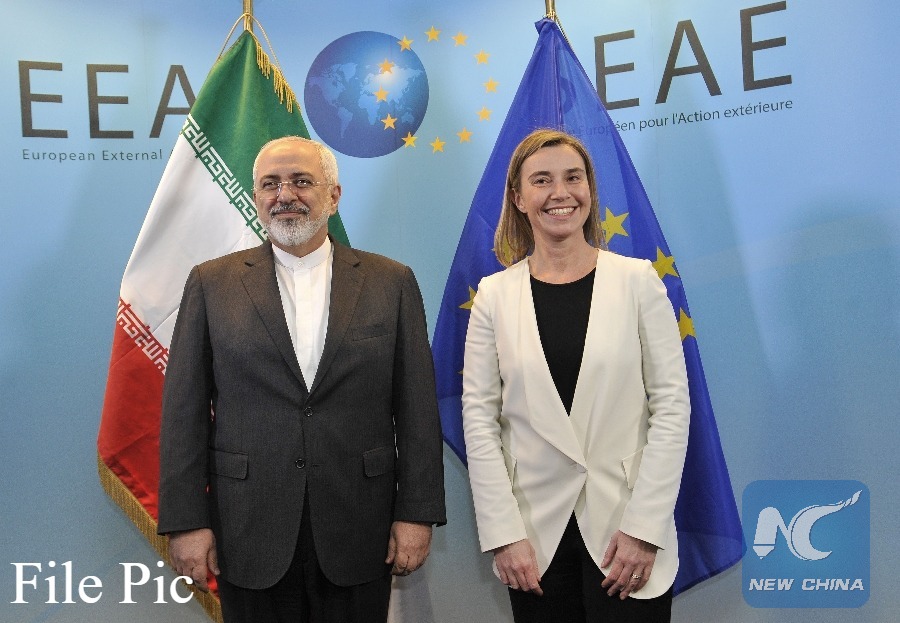
EU High Representative for Foreign Affairs and Security Policy Federica Mogherini (R) meets with Iran's Foreign Minister Mohammad Javad Zarif in Brussels, Beglium, on March 16, 2015. (Xinhua File photo)
TEHRAN, Jan. 31 (Xinhua) -- Iranian Foreign Minister Mohammad Javad Zarif on Thursday welcomed the establishment of a payment channel by three European states to help continue trade with Iran.
Zarif said Iran is ready for further "constructive interaction" with Europe based on mutual respect.
Earlier in the day, the European Union announced the setting up of the new institution, Instrument In Support Of Trade Exchanges (INSTEX), to secure trade with Iran and skirt U.S. anti-Iran sanctions after Washington pulled out of the 2015 landmark nuclear deal last May.
"The purpose of this mechanism is to bring the whole payments between Iran and Europe and all of our exports and imports into this financial mechanism," Deputy Iranian Foreign Minister Abbas Araqchi said on Thursday.
In an interview with state IRIB TV, Araqchi expressed the hope that INSTEX would serve as a model for Iran's broad economic interests beyond Europe.
The newly-established mechanism will fully serve Iran's interests when "the non-European countries or companies could also have access to it" as the non-Europeans would also be able to use the channel, Araqchi said.
The payment channel's function will be discussed during the upcoming expert meetings between Iran and Europe, he added.
"We hope this financial channel would be carried out completely ... and would involve all the commodities," Araqchi noted.
Meanwhile, he dismissed the reports that the mechanism would uphold only the businesses not sanctioned by the United States, stressing that the channel has been designed to cover the sanctioned items.
A same mechanism is planned to be formed inside Iran in order to organize the rial-based exchanges for the Iranian businesses, Araqchi said.
After leaving the Iranian nuclear deal, the U.S. government re-imposed sanctions on Iran's key economic sectors, threatening to impose secondary sanctions on foreign companies maintaining business connections with Iran in these areas.
On Sunday, Chief of Atomic Energy Organization of Iran Ali Akbar Salehi urged the EU to implement its obligations within the framework of the Iranian international nuclear deal.
"We hope the Europeans to implement their promises before it is late," Salehi was quoted as saying by official IRNA news agency.
INSTEX will allow trade between the EU and Iran without relying on direct financial transactions. It is a project of the governments of France, Germany and Britain and will receive the formal endorsement of all EU members.
The mechanism is the first concrete step by the EU to counter U.S. President Donald Trump's unilateral decision to withdraw from the Iranian nuclear deal.

